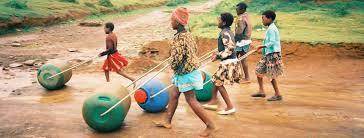
Breaking News
 EXCLUSIVE: "The HUGE Elephant In The Room Is Actually What Jeffrey Epstein Was Best At..."
EXCLUSIVE: "The HUGE Elephant In The Room Is Actually What Jeffrey Epstein Was Best At..."
 EXCLUSIVE INTERVIEW: Republican Candidate For Texas Governor "Doc" Pete Chambers Joins...
EXCLUSIVE INTERVIEW: Republican Candidate For Texas Governor "Doc" Pete Chambers Joins...
 Epstein Files Trigger Political Fallout Across Europe
Epstein Files Trigger Political Fallout Across Europe
 Conjoined twin 'influencers' who have gained more than 280,000 followers with their intimate
Conjoined twin 'influencers' who have gained more than 280,000 followers with their intimate
Top Tech News
 How underwater 3D printing could soon transform maritime construction
How underwater 3D printing could soon transform maritime construction
 Smart soldering iron packs a camera to show you what you're doing
Smart soldering iron packs a camera to show you what you're doing
 Look, no hands: Flying umbrella follows user through the rain
Look, no hands: Flying umbrella follows user through the rain
 Critical Linux Warning: 800,000 Devices Are EXPOSED
Critical Linux Warning: 800,000 Devices Are EXPOSED
 'Brave New World': IVF Company's Eugenics Tool Lets Couples Pick 'Best' Baby, Di
'Brave New World': IVF Company's Eugenics Tool Lets Couples Pick 'Best' Baby, Di
 The smartphone just fired a warning shot at the camera industry.
The smartphone just fired a warning shot at the camera industry.
 A revolutionary breakthrough in dental science is changing how we fight tooth decay
A revolutionary breakthrough in dental science is changing how we fight tooth decay
 Docan Energy "Panda": 32kWh for $2,530!
Docan Energy "Panda": 32kWh for $2,530!
 Rugged phone with multi-day battery life doubles as a 1080p projector
Rugged phone with multi-day battery life doubles as a 1080p projector
 4 Sisters Invent Electric Tractor with Mom and Dad and it's Selling in 5 Countries
4 Sisters Invent Electric Tractor with Mom and Dad and it's Selling in 5 Countries
This Invention Is Helping To Solve The Water Crisis In The Easiest Way

It may be difficult to imagine but all over the world, people are struggling to not only gain access to water because of the global water crisis but also to transport any water they can access.
The Hippo Water Roller was designed to alleviate the daily struggle of women and children, the primary water-retrievers, by helping them to more easily transport more water than they can usually carry in one trip.
A typical trip to collect water results in women and children carrying 20 Liters of water on their head each time. The Hippo Water Roller allows them to either push or pull up to 90 Liters at a time.
The water is contained in a drum attached to a steel clip handle that is easily maneuvered by anyone using it.
Not only does it prevent injuries from occurring because water is no longer being balanced on a person's head, the fact that it collects nearly five times more than usual allows women and children more time in the day for other tasks.

Credit: Hippo Roller
Women can spend more time at home attending to household affairs or working at a job; and children can use the extra time to attend school. More time can also be spent on food productivity and processing for farm households.
Former South African president Nelson Mandela personally endorsed the project and appealed to the private and corporate sectors to support and fund it. He spoke of the project, saying,
"A personal appeal is made to your organization to actively support a national project which will positively change the lives of millions of our fellow South Africans."



